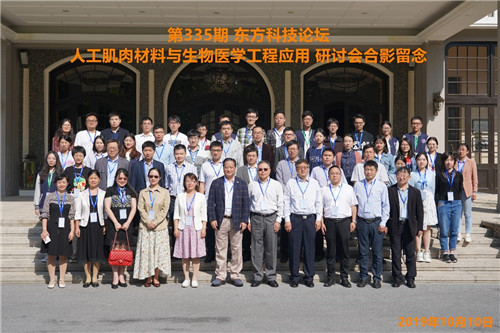Search
On October 10, 2019, the Eastern Forum of Science and Technology 335 'artificial muscle materials and their application in biomedical engineering' workshop, which was jointly initiated and sponsored by Shanghai Municipal People's Government, Chinese Academy of Sciences, and Chinese Academy of Engineering, and was organized by Fudan University was held in Shanghai Science Hall. Focused on two central topics (1. Artificial ligaments and tendons; 2. Smart polymer materials and bionic applications), the workshop probed on a clinical requirements-oriented basis into the application prospects, the existing problems, the possible solutions, and the direction of future development of smart polymer materials and the bionic flexible devices constructed thereof in medicine. Prof. Yanlei Yu from the Department of Materials Science, Fudan University, and Prof. Shiyi Chen, Director of the Institute of Sports Medicine at Fudan University and Director of the Department of Sport Medicine, Huashan Hospital co-chaired the workshop. Yang Song, Deputy Director of the Basic Research Division under Shanghai Commission of Science and Technology presided over the opening ceremony; Guoqing Fu, Chairman of the Eastern Forum of Science and Technology and Deputy Director of Shanghai Commission of Science and Technology delivered a speech.
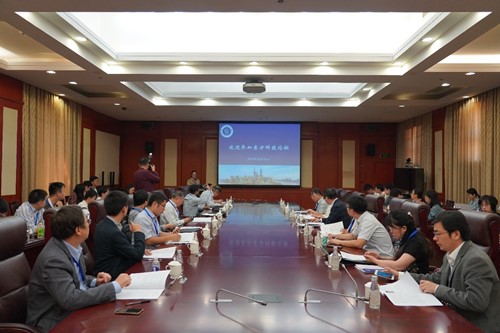
When delivering his keynote speech 'Artificial Ligaments: Bench to Bedside', Prof. Shiyi Chen remarked that the development of reconstructing the anterior cruciate ligament through artificial grafts has been controversial for many years; it should be noted that, however, artificial grafts are absolutely superior to autologous and allogeneic grafts in material selection, mechanical strength and early functional recovery. According to him, the failure of early clinical application of artificial grafts was associated with the defects in product design and material, the immature arthroscopic surgery techniques and the business competitions. With the instant development of material technologies and sports medicine, however, 'novel' artificial ligaments have been extensively used as replacement grafts in joint ligament reconstruction; they are ideal for curing the injuries to anterior and posterior cruciate ligaments. Prof. Shiyi Chen believed the development of novel smart artificial ligaments would turn into an important orientation in sports medicine.
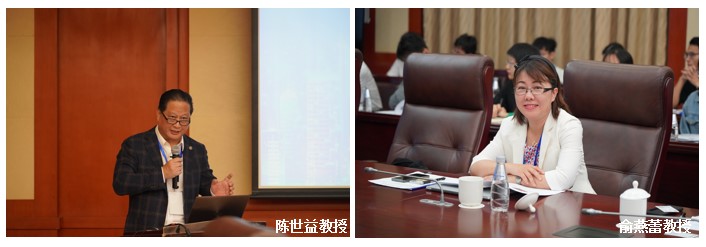
For the topic 'artificial ligaments and tendons', Hongbin Lyu, Director of the Department of Sport Medicine at Xiangya Hospital Central South University, Kanglai Tang, Director of the Sports Medicine Center under the Department of Orthopaedics at The Southwest Hospital of AMU, Hongwei Ouyang, the Seek-Truth Special-term Professor of Zhejiang University, Prof. Weifang Rong from the Department of Anatomy and Physiology, School of Medicine, Shanghai Jiao Tong University, Shiwu Dong, Director of Department of Biomedical Engineering, Army Medical University, and Prof. Xizheng Zhang from Army Medical University made in-depth exploration into such important issues as 'muscle characteristics', 'defects of repair materials currently in clinical use', and 'prospects of artificial muscles' from the perspective of tissues engineering and biomedicine based on their own research orientations.
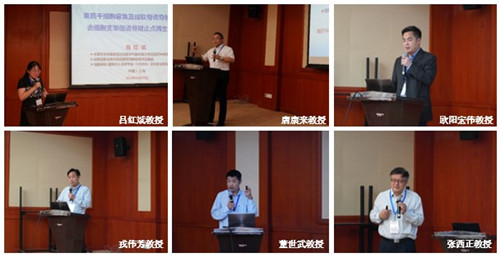
For the topic 'smart polymer materials and bionic applications', Associate Professor Yan Ji from Tsinghua University, Prof. Hong Yang from Southeast University, Associate Professor Qingsong He from Nanjing University of Aeronautics and Astronautics, Associate Professor Qian Zhao from Zhejiang University, Professor Ziliang Wu from Zhejiang University, Professor Zhenjie Zhang from Nankai University, and other young talents in the field of materials chemistry illustrated the research advances and bionic applications of liquid crystal polymers, ionic electro-actuated polymers, hydrogels and shape-memory polymers, and jointly probed into the application bottleneck and future development orientation of smart polymer materials with properties like intelligence and flexible bionics in the field of artificial muscles.
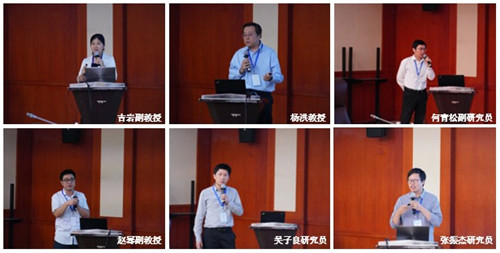
China's overall research in the field of smart polymer materials is internationally advanced, and even has a leading edge in the design and synthesis of high-performance materials. However, we are inferior to others in terms of the structure control and simulation, the construction of flexible bionic actuators and their clinical transformation. The experts and scholars who were present at the current Eastern Forum of Science and Technology reached a consensus that the next focus of research should be how to integrate these cutting-edge technologies with biomedicine to solve various scientific and technical problems in practical clinical applications in the future, e.g., the applications in the repair of ligament and tendon injuries. To achieve this goal, cross-disciplinary collaboration is needed. It's essential to call up the researchers in chemistry, materials, biology, medicine and other disciplines, and allow them to give full play to their respective advantages for in-depth integration, thereby working together to establish platforms for interdisciplinary cooperation and exchange and talent cultivation so as to make concerted efforts to impulse the achievement transformation and clinical transformation of smart polymer materials in biomedicine.
